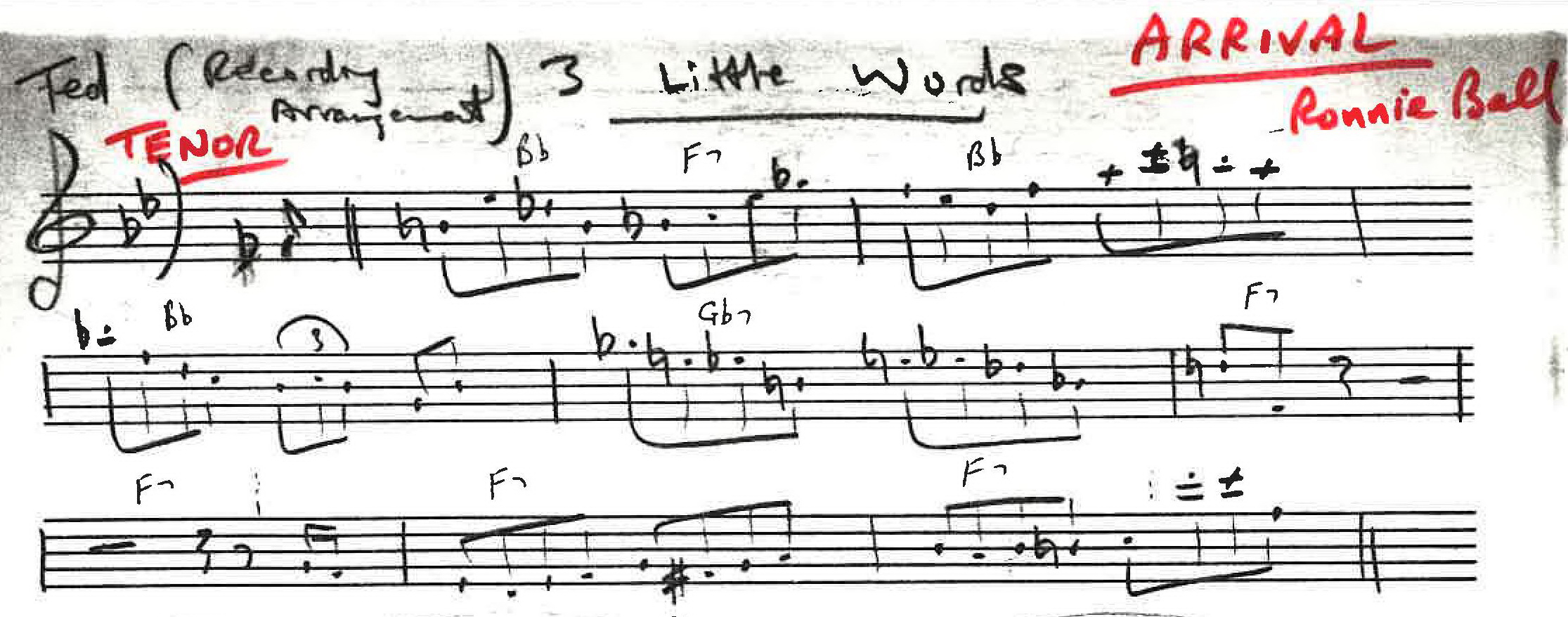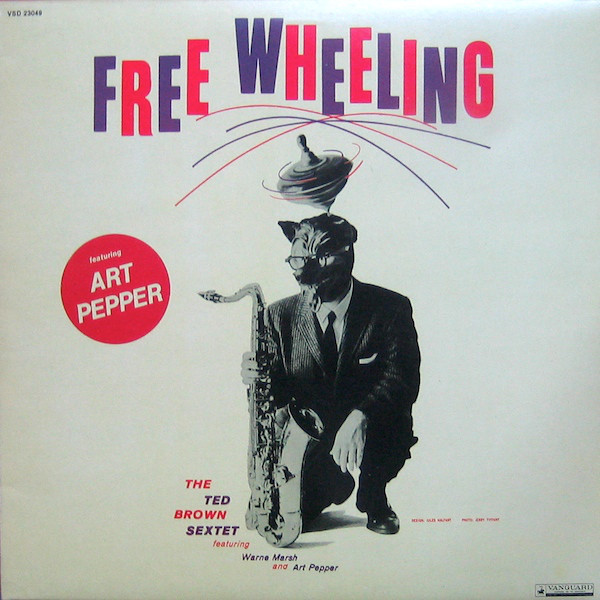Arrival – Ronnie Ball
A lively, winding uptempo line on the changes of Three Little Words. Lead sheets and a condensed score and parts are available for the three-horn arrangement.
- Recording: Ted Brown - Free Wheeling
- Recorded on: December 21, 1956
- Label: Vanguard (VRS 8515)
- Concert Key: A-flat
- Vocal Range: , to
- Style: Swing (uptempo)
- Alto Sax - Art Pepper
- Tenor Sax - Warne Marsh, Ted Brown
- Piano - Ronnie Ball
- Bass - Ben Tucker
- Drums - Jeff Morton
Purchase Arrival - Ronnie Ball
Purchasing this song through our affiliate links with certain retailers provides jazzleadsheets.com with additional support to help keep us bringing you the best lead sheets available. Thank you!
Video
- Description
- Historical Notes
- Solos
- Piano Corner
- Bass Corner
- Drum Corner
- Guitar Corner
- Inside & Beyond
- Minus You
An uptempo song very much in the tradition of the Lennie Tristano school; it's based on the changes of the standard Three Little Words. Though these changes have an AABA form, the melody of Arrival never repeats. The melodic line winds over a wide range, occasionally side-stepping around the changes. In several places there are sequences that repeat over the barline, such as a three-beat sequence at the beginning and a five-beat sequence at the end of the C section. The first six measures of the C section (the bridge) have a more conventional, somewhat bluesy melody which contrasts with the rest of the song.
About the arrangement: The three saxes start the melody in unison, but are harmonized in a few places: measures 6 and 7 of A, from the fourth measure of B through the sixth measure of C, and the first two measures of D. These harmonies are mostly triads and are arranged, rather unconventionally, mostly with tenors on the top and bottom and alto in the middle. In a few places, the alto even plays the bottom note. We have chosen to keep these voice crossings in our transposed guitar 2nd and 3rd parts and tenor 2nd part.
The melody has an exceedingly wide range, in two places extending a fourth above the standard range of the tenor sax (concert A♭, written B♭). Warne Marsh handles the altissimo notes perfectly on the recording; they are included in our tenor sax lead sheet. Tenor saxophonists playing the melody without the three-horn arrangement can take these passages down an octave. Our bass clef lead sheet deals with the width of the range by showing the first twelve measures in the same octave as the treble clef lead sheet; the rest is an octave below.

The red lettering Tenor / Arrival / Ronnie Ball is Ted's writing on the photocopy he gave me of the original part (third part) Ronnie gave him. It's also interesting to see that it still hadn't been titled yet. 3 Little Words just let everyone know what changes it's based on. See the Historical Notes for Aretha for more about this session.
The personnel on "Free Wheeling," recorded in Hollywood, is a fascinating mix of East and West Coast, with L.A. locals Art Pepper and Ben Tucker added to the visiting New York contingent of Ronnie Ball, Warne Marsh, Ted Brown, and Jeff Morton—all members of the Tristano school. Pepper does a great job of blending in with Marsh and Brown, with a similar sort of timbre despite his different stylistic background. Bassist Ben Tucker, best known for his hard bop and soul-jazz work in the '60s, made his first recordings in this band, which played extensively as a quintet without Art Pepper.
Related Songs
Email Send Arrival to a friend

Ronnie Ball
December 22, 1927 – October 3, 1984
Ronnie Ball was born in Birmingham, United Kingdom, where he played local gigs from the age of fifteen before moving to London in 1948. There he worked with Tony Kinsey and Reggie Goff's Sextet as well as leading his own trio. He worked on the Queen Mary on the transatlantic cruise run to New York from 1949 to 1951, studying with Lennie Tristano on New York stopovers. Read more...

